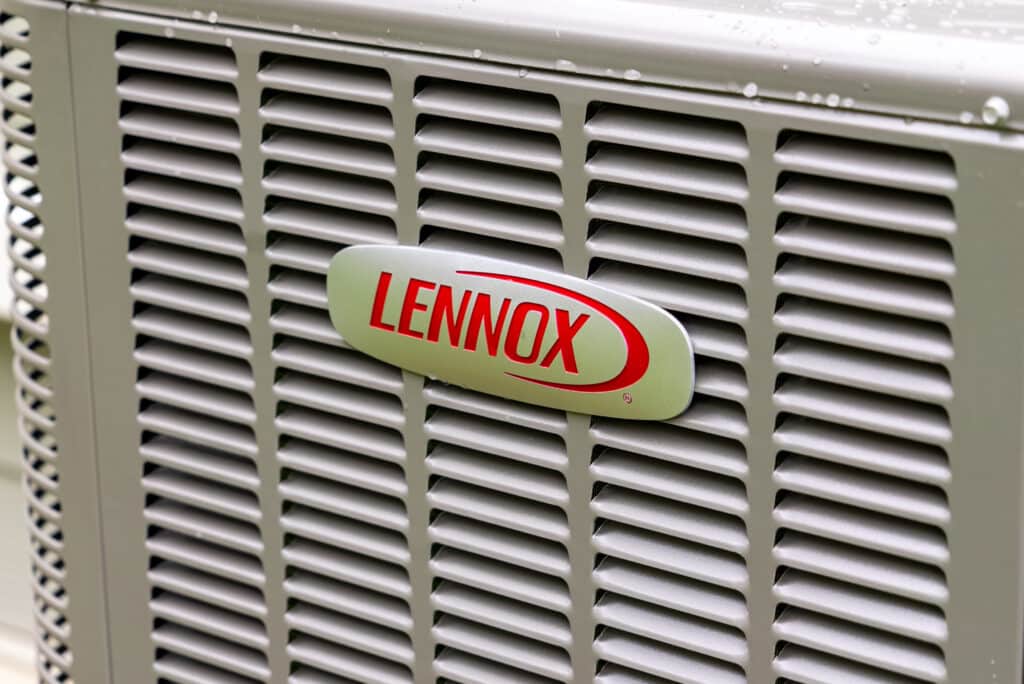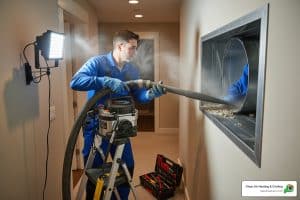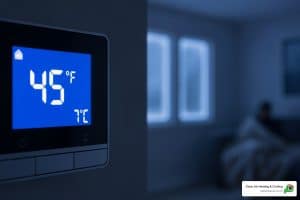Fixing Your AC in San Juan: A How-To Guide
Air conditioning repair San Juan is essential to keep your home comfortable, especially in the hot and humid climate. If you are looking for quick tips, here’s a fast guide to address your concerns:
- Check your filters: Clean or replace them if they’re dirty.
- Inspect the thermostat: Ensure it’s set correctly and functioning.
- Check for leaks: Look around your unit for any signs of refrigerant leaks.
Now, let’s dive deeper to understand why AC maintenance is so important and how San Juan’s unique climate affects your system.
Maintaining your air conditioner ensures it runs efficiently and lasts longer. In San Juan, where temperatures and humidity levels can be high, a well-maintained AC can be your best defense against the heat. Regular upkeep prevents unexpected breakdowns and keeps your utility bills in check.
I’m Colin Matei, owner and president of Clean Air Heating & Cooling. With years of experience in air conditioning repair San Juan, I know how to keep your system running smoothly. Our company is dedicated to providing top-notch HVAC services that make your home a comfortable haven.

Simple guide to Air conditioning repair San Juan:
– AC installation San Juan
– San Juan Heating and Air Conditioning
Is it Worth Repairing Your Air Conditioner?
When your air conditioner breaks down, the first question you might ask is whether it’s worth fixing. Let’s explore the factors that can help you decide.
Cost-effectiveness
Repairing your air conditioner might seem expensive at first. However, professional repair services can actually save you money over time. Certified technicians can accurately diagnose and fix issues, preventing more significant problems that could be costlier to repair later on. Regular maintenance can also extend the lifespan of your unit, reducing the need for premature replacements.

Repair vs. Replacement
Deciding whether to repair or replace your air conditioner can be tricky. A practical guideline is the “$5,000 rule.” Multiply the age of your AC unit by the estimated repair cost. If the result exceeds $5,000, it might be more economical to replace the unit. For instance, if you have a 15-year-old AC that needs a $400 repair, the total is $6,000. In this case, replacing the unit could be a better option.
However, this rule is not absolute. Consider other factors like energy efficiency and comfort. A new unit might offer better performance and lower energy bills, which can offset the initial cost over time.
Long-term Savings
Investing in professional repairs and regular maintenance can lead to significant long-term savings. Properly maintained air conditioners run more efficiently, which can lower your energy bills. For example, cleaning or replacing air filters regularly helps your unit operate smoothly, reducing energy consumption.
Additionally, professional repairs often come with warranties, providing peace of mind and protection against future issues. This means you won’t have to worry about unexpected repair costs down the line.
In summary, while the initial cost of repairing your air conditioner might seem high, the long-term benefits usually outweigh the expenses. Regular maintenance and timely repairs can extend the lifespan of your unit, improve efficiency, and save you money in the long run.
Next, let’s look at some common AC problems and how to fix them.
Common AC Problems and How to Fix Them
When your air conditioner isn’t working right, it’s often due to a few common problems. Knowing what these are and how to fix them can save you time and money. Let’s explore refrigerant leaks, electrical issues, thermostat problems, and dirty filters.
Refrigerant Leaks
Refrigerant leaks are a common issue in air conditioning systems. The refrigerant is what cools the air, so if there’s a leak, your AC won’t cool properly.
How to fix it:
- Identify the leak: Look for oily spots or listen for a hissing sound near the AC unit.
- Call a professional: Fixing refrigerant leaks requires special tools and knowledge. A certified technician can locate and repair the leak, and then recharge your system with the correct amount of refrigerant.
Electrical Issues
Electrical issues can cause your AC to stop working altogether. This can include problems with wiring, capacitors, or the circuit board.
How to fix it:
- Check the circuit breaker: Sometimes, the problem is as simple as a tripped breaker. Reset it and see if your AC starts working.
- Inspect the wiring: Look for any visible damage or loose connections. If you find any, turn off the power and call a professional for repairs.
- Capacitor issues: Capacitors store energy and help start the motors in your AC. If a capacitor is bad, your AC won’t run. Replacing a capacitor is a job for a professional.
Thermostat Problems
A malfunctioning thermostat can make your AC run too much or not at all.
How to fix it:
- Check the settings: Make sure the thermostat is set to the correct mode (cooling) and temperature.
- Replace the batteries: If your thermostat has batteries, try replacing them.
- Calibration: Sometimes, thermostats need to be recalibrated. Follow the manufacturer’s instructions or call a professional if you’re unsure how to do this.
Dirty Filters
Dirty filters are one of the most common and preventable AC problems. They restrict airflow, making your AC work harder and less efficiently.
How to fix it:
- Locate the filter: It’s usually in the return air duct or the blower compartment.
- Inspect the filter: If it’s dirty, replace it with a new one. Most filters should be replaced every 1-3 months.
- Regular maintenance: Set a reminder to check and replace your filters regularly. This simple step can extend the life of your AC and improve its efficiency.

By understanding these common AC problems and knowing how to address them, you can keep your air conditioning system running smoothly. However, some issues require professional help. Don’t hesitate to call a certified technician if you’re unsure or if the problem persists.
Next, let’s explore how much it typically costs to repair an air conditioner in San Juan.
How Much Does It Cost to Repair an Air Conditioner in San Juan?
When it comes to air conditioning repair in San Juan, understanding the cost factors can help you budget and make informed decisions. Here’s a breakdown of what you can expect.
Cost Factors
Several factors influence the cost of repairing your air conditioner:
- Type of repair needed: Simple fixes like replacing a filter are cheaper than major repairs like fixing a refrigerant leak.
- Labor costs: The experience and certification of the technician can affect the price. More experienced professionals might charge more but offer better service.
- Parts and materials: The cost of replacement parts can vary. High-quality parts might be more expensive but offer better longevity.
- Service call fees: Many companies charge a fee just to come and diagnose the problem. This fee can vary widely.
- Urgency: Emergency repairs, especially during peak seasons, can be more expensive.
Typical Repair Costs
Here’s a rough estimate of common AC repairs:
| Type of Repair | Estimated Cost |
|---|---|
| Filter replacement | $20 – $50 |
| Thermostat replacement | $100 – $300 |
| Capacitor replacement | $100 – $250 |
| Refrigerant leak repair | $200 – $1,500 |
| Electrical issues | $150 – $500 |
| Compressor replacement | $1,200 – $2,800 |
These costs can vary based on the specific circumstances and the company you choose. It’s always a good idea to get a few quotes before making a decision.
Line Set Replacement Costs
If your air conditioner requires a line set replacement, you might be looking at higher costs. The line set is the copper tubing that carries refrigerant between the outdoor and indoor units. Replacing it can be complex and labor-intensive.
| Line Set Replacement | Estimated Cost |
|---|---|
| Standard line set replacement | $200 – $650 |
| Complex installations | Up to $1,000 or more |
The cost can depend on the length of the line set, the difficulty of the installation, and the type of refrigerant used.
Getting a Quote
To get an accurate estimate, contact a trusted local HVAC service like Clean Air Heating & Cooling. They can provide a detailed quote based on your specific needs and ensure you get the best service for your money.
By understanding these cost factors and typical repair costs, you can better plan for air conditioning repair in San Juan and ensure your home stays cool and comfortable.
Why Are HVAC Repairs So Expensive?
If you’ve ever had to repair your HVAC system, you might have wondered why the costs can be so high. Several factors contribute to the expense of air conditioning repair in San Juan. Let’s break it down:
Overhead Costs
HVAC companies have significant overhead costs. These include:
- Office space: Rent for the company’s office and storage spaces.
- Employee salaries: Not just for technicians, but also for administrative staff.
- Insurance: Liability and worker’s compensation insurance to protect both the company and its clients.
- Licensing and certifications: Maintaining required licenses and certifications to ensure they meet industry standards.
These overhead costs are factored into the price of every repair job.
Technician Travel
San Juan’s unique geography means that technicians often have to travel long distances to reach clients. This travel time may also add to the overall cost because:
- Fuel and vehicle maintenance: Keeping service vehicles running smoothly isn’t cheap.
- Travel time: Time spent on the road is time that could be spent on repairs, so companies need to account for this when pricing their services.
Tools and Supplies
The tools and supplies required for HVAC repairs are specialized and costly. Here’s why:
- High-quality tools: Professional-grade tools are expensive but necessary for accurate diagnostics and repairs.
- Replacement parts: Quality parts ensure longevity but come at a higher price.
- Safety equipment: Technicians need proper safety gear to handle hazardous materials like refrigerants.
Using the right tools and supplies ensures that repairs are done correctly and safely, but it also adds to the cost.
Understanding these factors can help you see why HVAC repairs might seem expensive. However, investing in professional repairs can save you money in the long run by preventing bigger issues and extending the life of your system.
How Long Does an HVAC System Last?
The lifespan of an HVAC system can vary based on several factors, but on average, you can expect it to last between 10 to 15 years. Some systems may even last up to 20 years with proper care and maintenance.
Maintenance Tips
Regular maintenance is key to extending the life of your HVAC system. Here are some simple tips:
- Annual Maintenance: According to the U.S. Energy Information Administration, only 42% of homeowners get annual maintenance. Scheduling a yearly check-up can catch small issues before they become big problems.
- Change Filters: Replace your air filter at least every 90 days. This keeps your system running efficiently and improves indoor air quality.
- Clean Ducts: Dirty ducts can reduce system efficiency and air quality. Regular duct cleaning can help maintain optimal performance.
- Check Refrigerant Levels: Low refrigerant can cause your system to work harder, leading to wear and tear. Have a professional check and refill it if necessary.
Signs of Aging Systems
Knowing when your HVAC system is reaching the end of its life can save you from unexpected breakdowns. Here are some signs to watch for:
- Frequent Repairs: If you’re calling for repairs every year, it might be time for a replacement. Continual repairs add up and may indicate that your system is nearing the end of its lifespan.
- Increased Energy Bills: Rising energy costs can signal that your HVAC system is working harder than it should. Newer models are more energy-efficient and can save you money in the long run.
- Inconsistent Temperatures: If some rooms are too hot while others are too cold, your system may be struggling to distribute air evenly.
- Excessive Noise: Unusual noises like banging, clanking, or grinding can be a sign that your system is wearing out.
Regular maintenance and being aware of these signs can help you decide when it’s time to repair or replace your HVAC system, ensuring consistent comfort in your home.
Frequently Asked Questions about Air Conditioning Repair in San Juan
Is it worth repairing an air conditioner?
In many cases, repairing your air conditioner can be a cost-effective solution, especially if the problem is minor. Professional repair services ensure that issues are fixed correctly, preventing more significant problems that could be costlier to repair later on. Regular maintenance can also extend the lifespan of your unit, reducing the need for premature replacements. For instance, fixing a refrigerant leak or replacing a faulty thermostat can restore efficiency without a hefty price tag.
However, consider the $5,000 rule: multiply the age of your unit by the repair cost. If the result exceeds $5,000, it might be wiser to replace the unit. For example, fixing a 15-year-old unit for $400 totals $6,000, suggesting replacement might be more economical in the long run.
How much does it cost to repair an air conditioner line?
Repair costs for an air conditioner line can vary based on several factors like the type of unit, the extent of the damage, and labor rates in San Juan. Typically, you might expect to pay between $200 to $600 for line set repairs. Factors influencing costs include:
- Line Set Details: The complexity and length of the line set can affect the price. Longer lines or those requiring special materials will cost more.
- Labor Costs: Labor rates in San Juan can vary, but skilled technicians ensure the job is done right, saving you from future expenses.
- Parts and Supplies: High-quality parts and tools are essential for a lasting repair. Using subpar materials can lead to recurring problems.
Why are HVAC repairs so expensive?
HVAC repairs often seem expensive due to several underlying factors:
- Overhead Costs: Companies have overhead costs like insurance, licensing, and office expenses that are factored into repair prices.
- Technician Travel: Travel time and fuel costs for technicians to reach your location in San Juan also add to the overall expense.
- Specialized Tools and Supplies: HVAC repairs require specialized tools and high-quality parts to ensure effective and durable fixes. These tools and supplies come at a cost, which is reflected in the repair charges.
Investing in professional repairs ensures that your unit operates efficiently and safely, ultimately saving you money and hassle in the long run.
Conclusion
Maintaining a functional air conditioner is crucial for comfort in San Juan’s varied climate. While repairs can seem costly, they often save money in the long run by extending the lifespan of your unit and preventing more serious issues.
At Clean Air Heating & Cooling, we pride ourselves on delivering top-notch HVAC services. Our team is dedicated to quality, ensuring every repair or installation meets the highest standards. With over 480 5-star Google reviews, our customers’ satisfaction is our top priority.
We offer a 25% utility savings guarantee, meaning our services not only fix your AC but also help you save on energy bills. Our technicians are skilled, experienced, and ready to tackle any HVAC challenge you face in San Juan.
For more information or to schedule a service, visit our San Juan County service page. Let’s make your home comfortable again!
If you have any questions or need assistance, don’t hesitate to contact us. We’re here to help.





